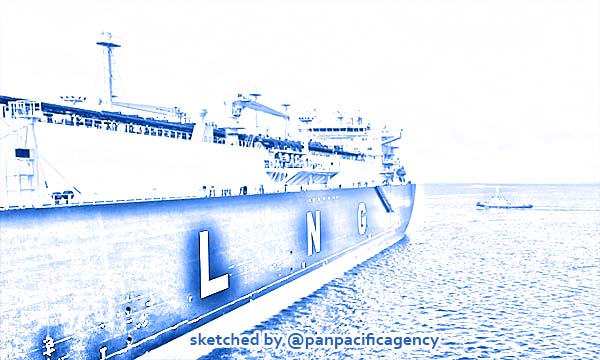Bangladesh’s Summit FSRU to halt LNG imports due to mooring line damage

Under the country's gas industry development plan by 2025, with vision to 2035, Vietnam plans to have six LNG terminals. Photo by Shutterstock. Sketched by the Pan Pacific Agency.
DHAKA, Dec 1, 2021, SP. Summit Group’s floating storage regasification unit in Bangladesh, one of the country’s two LNG importing facilities, has halted LNG imports due to a damaged mooring line that may not be fixed until mid-January, according to government officials, SP reported.
The mooring line of the FSRU tore in the last week of November, and will halve Bangladesh’s LNG re-gasification capacity to around 500,000 Mcf/d within the next couple of days, a senior energy ministry official told S&P Global Platts Nov. 30.
The FSRU will not be able to carry out ship-to-ship transfers of LNG until a fresh mooring line is fixed and will only be able to re-gasify the remaining LNG stored in its inventory, leaving the country’s second terminal — Excelerate Energy’s FSRU — the sole operational gas import facility.
Summit’s 3.75 million mt/year capacity FSRU had around 49,000 cu m of lean LNG left in its inventory as of Nov. 29, the official said.
Building a new mooring line and fixing it at Summit’s FSRU will not be possible before Jan. 15, 2022, according to a statement by the Ministry of Power, Energy and Mineral Resources, or MPEMR, released Nov. 30, 2021. The ministry said it was concerned about the impact on natural gas supply and urged consumers to conserve gas usage.
A senior official at state-run oil company Petrobangla voiced concerns that the situation at Summit’s FSRU might limit Bangladesh’s LNG imports until January. A total of six LNG cargoes are already scheduled to arrive for re-gasification in Bangladesh from two long term LNG suppliers, namely Qatargas and Oman Trading International, in December, he said.
Excelerate Energy’s FSRU will have to re-gasify all six LNG cargoes to be imported in December, he said, adding that Petrobangla may have to reduce LNG imports if Excelerate fails to re-gasify all the LNG cargoes, each with around 138,000 cu m of lean LNG.
Bad Timing
The damage could complicate an earlier decision by Bangladesh to defer spot LNG imports to December due to high Asian spot LNG prices and lower demand for natural gas during winter. The bad timing of the outage risks creating a severe gas shortage in the South Asian country.
Bangladesh has the option to defer the shipments under its term contracts depending on availability, and its suppliers will be able to find alternative buyers with ease given peak winter demand and the tight global gas market. Any LNG bought on the spot market can also be diverted although rearranging supply for January could be tricky because of market conditions, traders said.
Summit Group has informed state-run Rupantarita Prakritik Gas Company Ltd, or RPGCL, and the MPEMR, about the latest situation with regards to its FSRU, the official said. RPGCL, a wholly owned subsidiary of state-run Petrobangla, carries out LNG trades on behalf of Petrobangla as well as the government.
When contacted, Summit Group declined to comment on the matter.
Summit Group’s FSRU started supplying regasified LNG on April 29, 2019 as the country’s second FSRU after Excelerate’s terminal, doubling the country’s LNG capacity to 1 Bcf/d. The FSRUs have, however, been operating below capacity as gas supply networks to downstream customers are still being constructed.
As of Nov. 29, Bangladesh’s overall natural gas supply is hovering around 2.97 Bcf/d, of which around 590 MMcf/d is re-gasified LNG and the remaining around 2.40 Bcf/d of gas output comes from local gas fields.